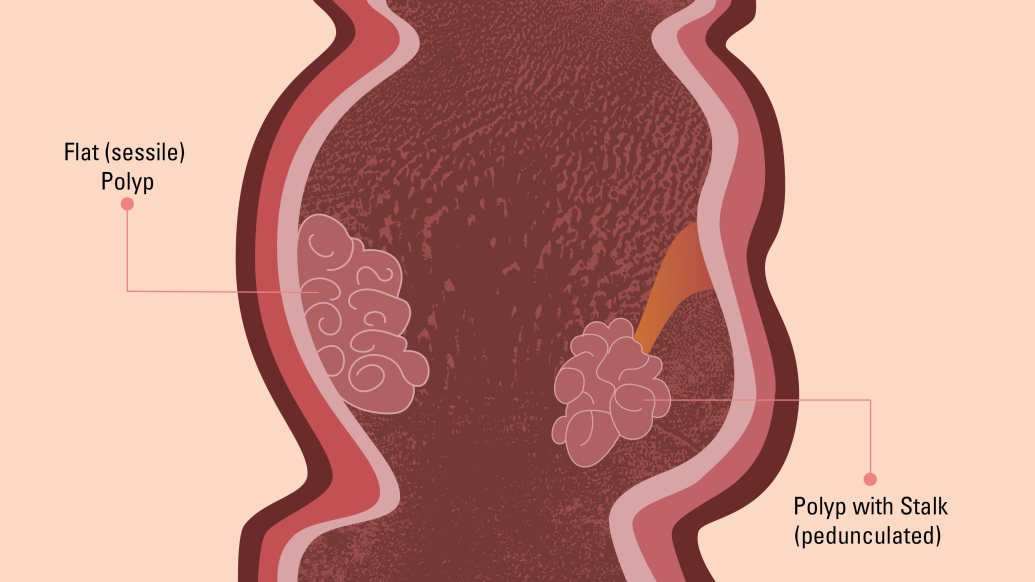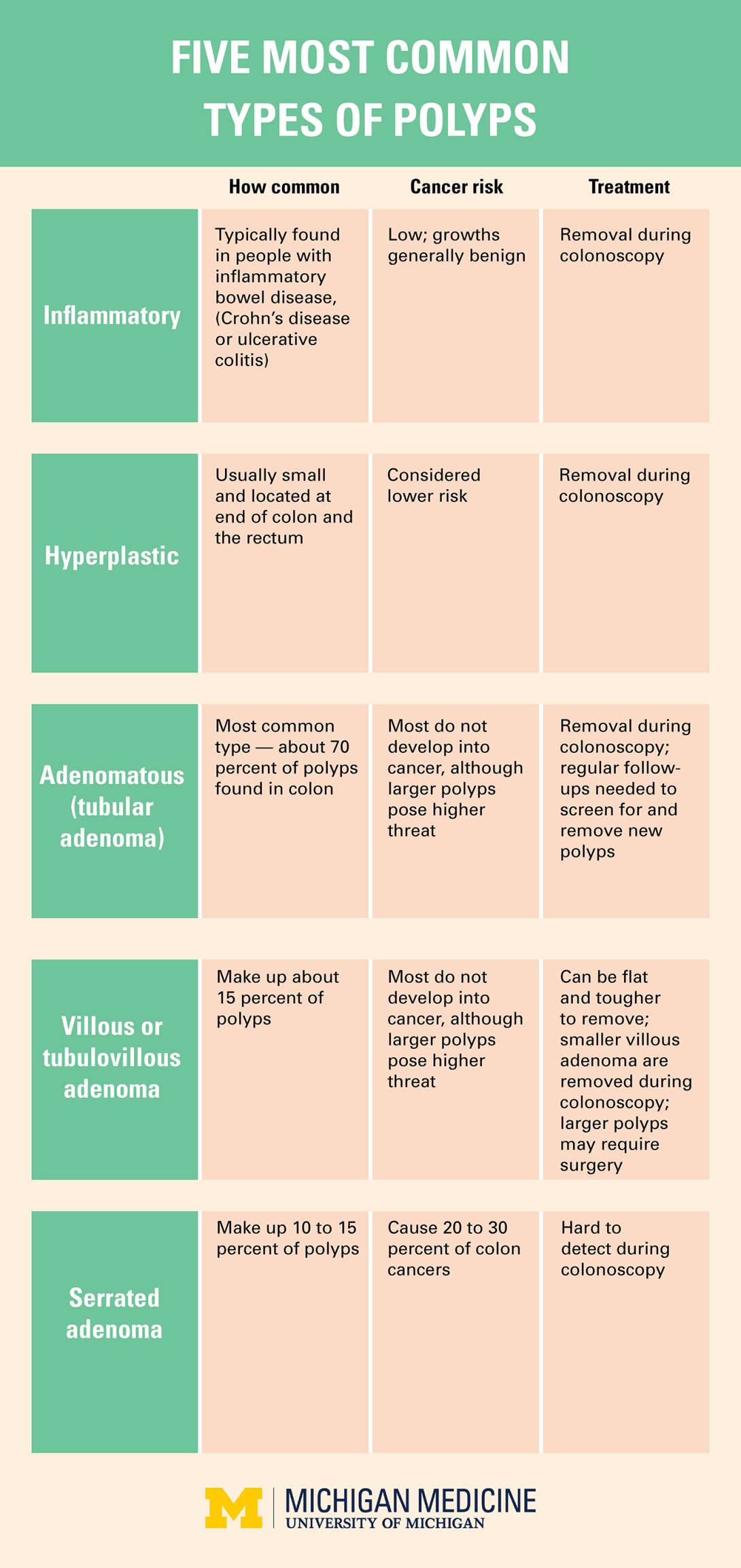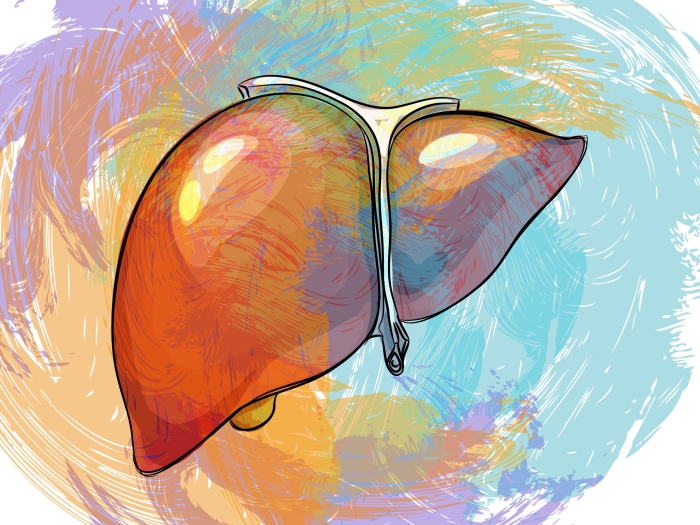Often present without symptoms, polyps require vigilance and removal to reduce the risk of colon cancer.
1:00 PM
Author |

A polyp is a small growth of excess tissue that forms on the lining of the large intestine, also known as the colon.
Although unwanted, they aren't uncommon: Colon and rectal polyps occur in about 25 percent of men and women 50 and older.
MORE FROM THE HEALTH BLOG: Subscribe to our weekly newsletter
The large majority of polyps won't turn into cancer, and it may take years for a polyp to become cancerous.
Still, colon cancer is the third most common cancer in the United States — and one of the most preventable and curable.
Because anyone can develop colon and rectal polyps, it's important to be informed.
Small polyps may come without symptoms. Warning signs, though, could include abdominal pain, anemia, bleeding, diarrhea and unexplained weight loss.
Who is most at risk
People with the following factors are at a higher risk, according to the American Cancer Society:
- Age 50 and older
- A family history of polyps or colon cancer
- Rare inherited genes that make people more likely to develop polyps
- An inflammatory bowel disease, such as ulcerative colitis or Crohn's disease
- A high-fat, low-fiber diet
- Tobacco and alcohol use
- A habit of little or no exercise
- Obesity
Shapes and removal
Polyps grow in two different shapes:
- Sessile polyps lie flat against the surface of the colon's lining, also known as the mucous membrane. They're more common than previously thought and harder to detect in colon cancer screening.
- Pedunculated polyps are mushroom-like tissue growths that attach to the surface of the colon's mucous membrane by a long, thin stalk.
Polyps can be detected and safely removed during a colonoscopy, reducing a person's risk of developing colon cancer. Large polyps may require more than one treatment; surgery could be necessary for complete removal.
If you have an increased risk for colon polyps, talk with your doctor about the types and frequency of tests that will be best for you.
Know your polyps
Not all polyps are alike. Here are the five most common types of colon and rectal polyps:

What are complex polyps?
Complex polyps have one of the following features: size greater than 2 centimeters, a location unfavorable or too sessile (flat) for removal by more straightforward techniques, or simply polyps that the doctor performing your colonoscopy does not think can be removed safely.

Explore a variety of health care news & stories by visiting the Health Lab home page for more articles.

Department of Communication at Michigan Medicine
Want top health & research news weekly? Sign up for Health Lab’s newsletters today!





